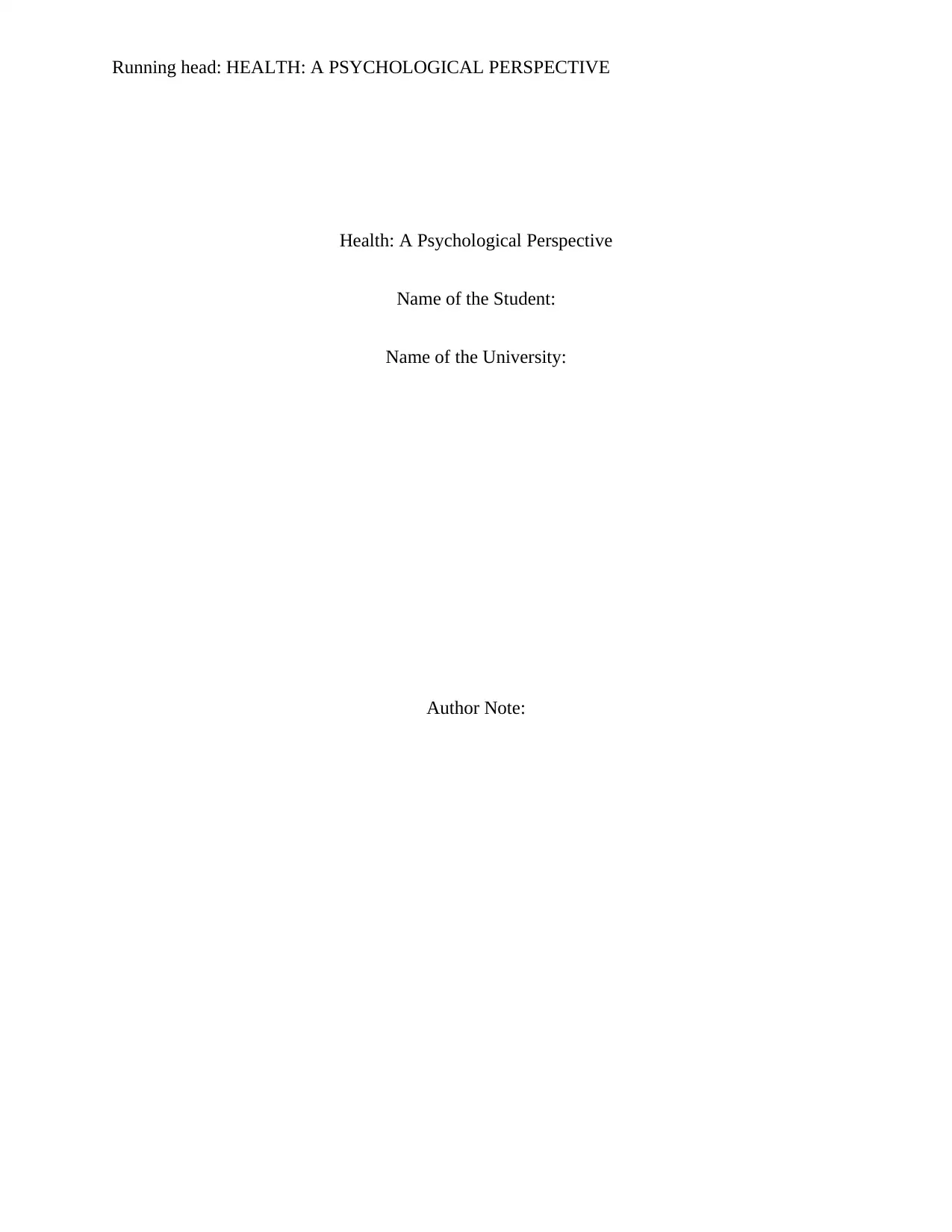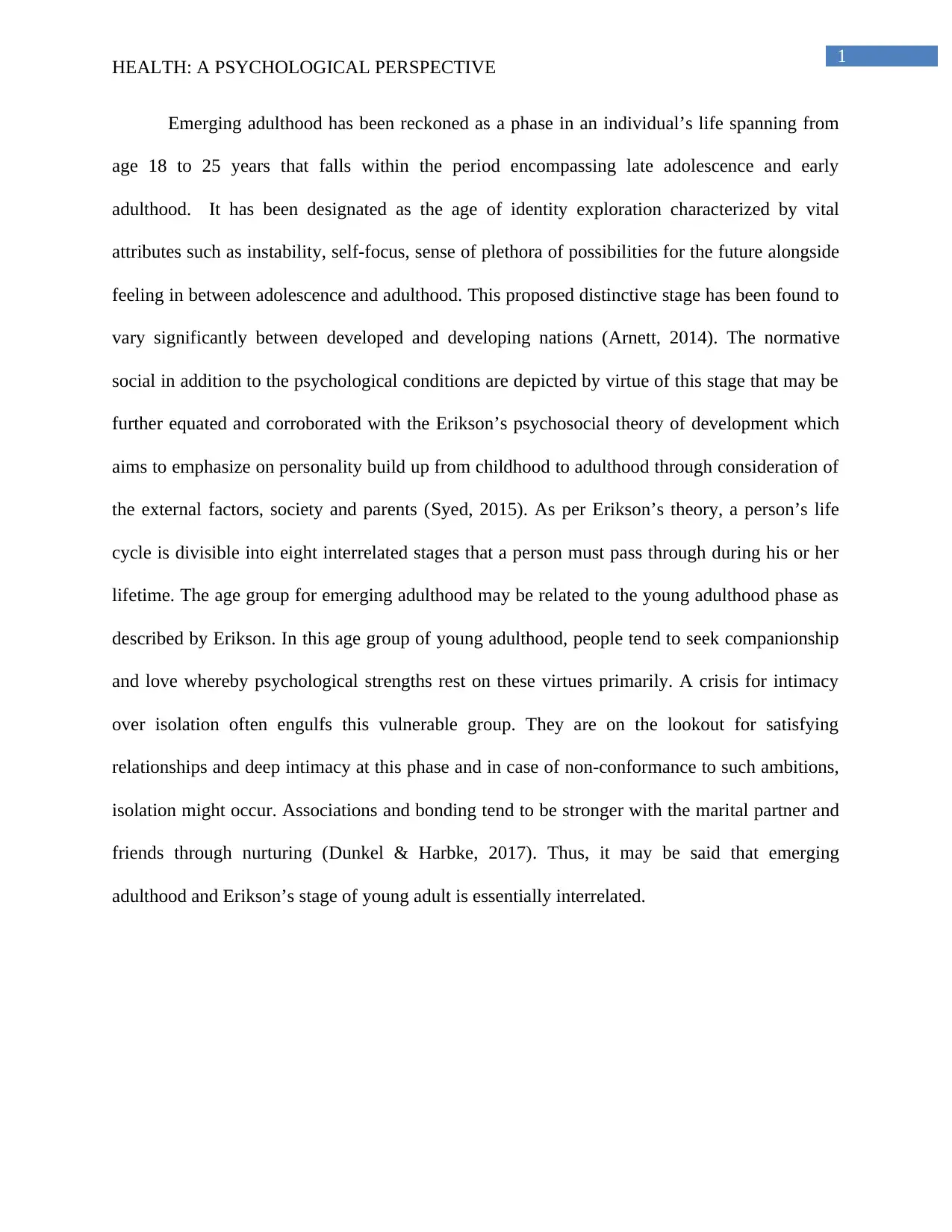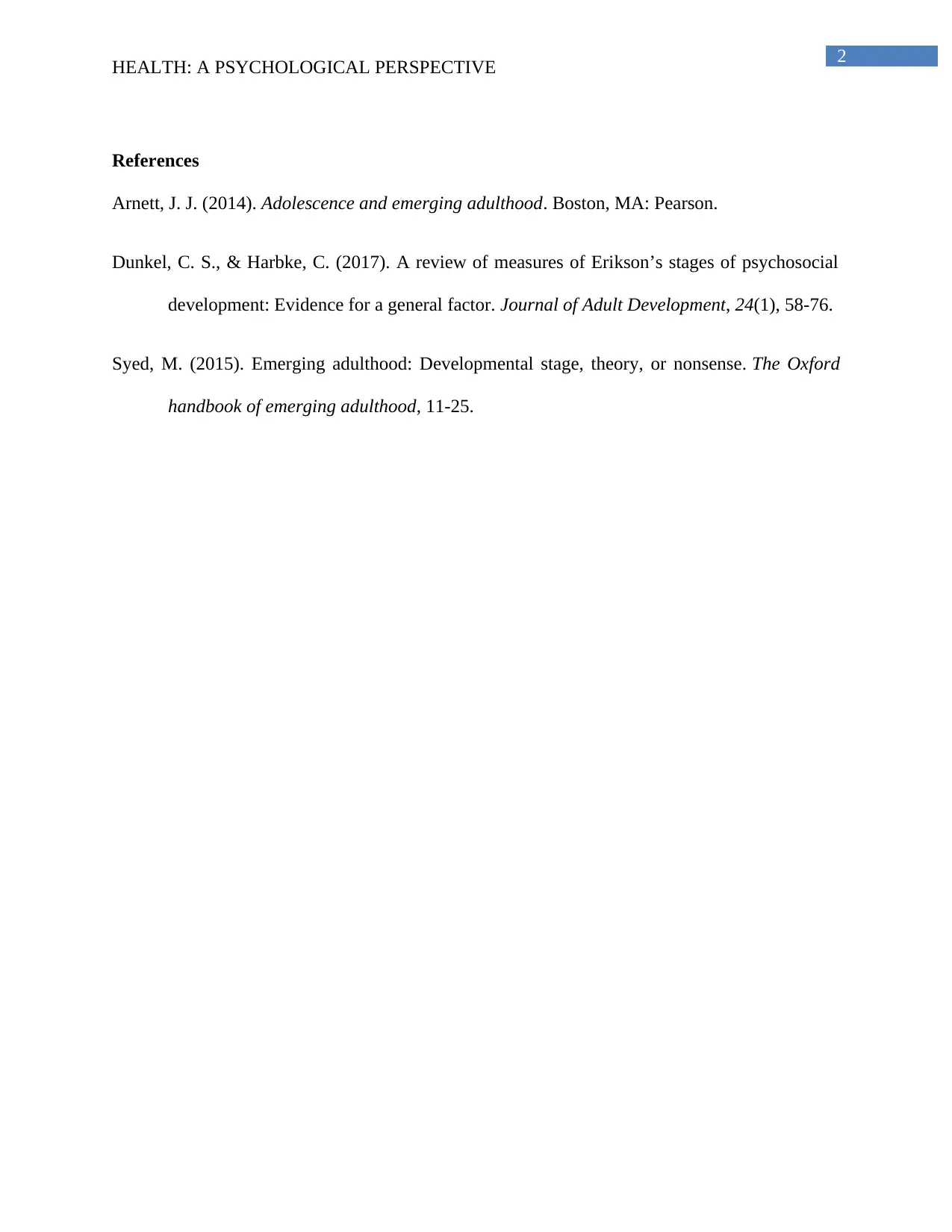Psychology Report: Health, Emerging Adulthood, Erikson's Theory
VerifiedAdded on 2020/03/01
|3
|431
|130
Report
AI Summary
This report delves into the psychological aspects of health, focusing on the stage of emerging adulthood and its correlation with Erikson's psychosocial theory of development. The report highlights the key characteristics of emerging adulthood, such as instability, self-focus, and the exploration of possibilities, and contrasts it with both the developed and developing nations. It connects this stage with Erikson's young adulthood phase, emphasizing the importance of relationships and intimacy. The report explores the psychological strengths associated with this stage and the potential for isolation if these needs are not met. It references relevant studies and theories, providing a comprehensive overview of the subject matter. The report examines the importance of social and psychological conditions during this period and their link to the development of identity, relationships, and overall well-being.
1 out of 3










![[object Object]](/_next/static/media/star-bottom.7253800d.svg)